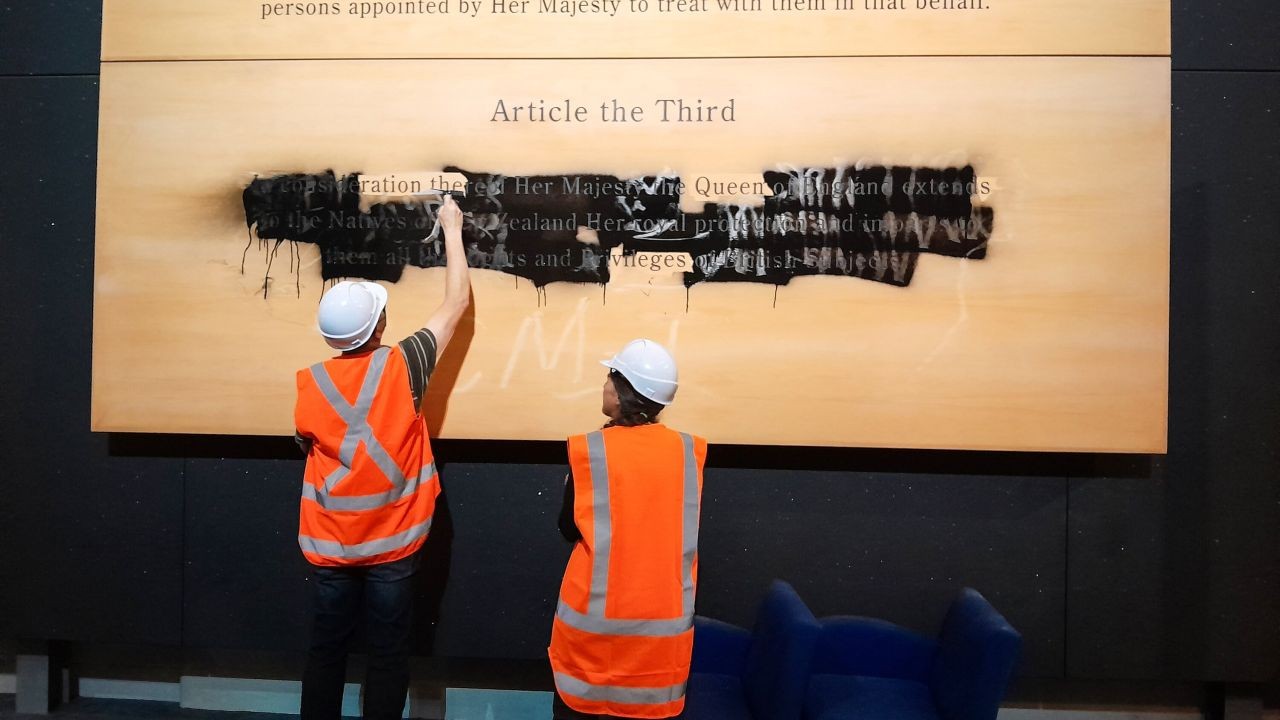In the intricate mosaic of New Zealand's socio-political landscape, the settlement of Treaty claims stands as one of the most significant yet often misunderstood processes. Over 80% of these claims have been settled since 1975, but what does this mean for New Zealand's environmental landscape, and how does it relate to the country's broader socio-economic fabric?
Understanding Treaty Settlements: A Path Towards Reconciliation
The Treaty of Waitangi, signed in 1840, is New Zealand's foundational document, promising protection and partnership between the Crown and Māori tribes. However, historical grievances arose due to breaches of this treaty, prompting the need for settlements. These settlements aim to rectify past injustices, providing financial compensation and cultural recognition to affected iwi (tribes).
Environmental impacts are a crucial component of these settlements. Many claims involve the return of land and resources, which are vital for the sustainable development of Māori communities. According to a report from the Ministry for the Environment, incorporating indigenous knowledge in land management can enhance biodiversity and sustainability, benefitting the country as a whole.
Case Study: Ngāi Tahu Settlement
The Ngāi Tahu settlement, finalized in 1998, is one of the most notable examples of a Treaty settlement's transformative impact. Ngāi Tahu, a prominent South Island iwi, received a $170 million settlement, including significant land and resources. This settlement has allowed Ngāi Tahu to become a major economic player, investing in tourism, agriculture, and fisheries.
This case study highlights the potential for Treaty settlements to stimulate regional economies. Ngāi Tahu's ventures in eco-tourism, for instance, emphasize sustainability and cultural education, attracting international visitors and providing jobs to local communities. Their environmental stewardship has been recognized as a model for integrating traditional Māori knowledge with modern conservation practices.
Expert Insights: The Economic Ripple Effect
Dr. Aroha Harris, a renowned historian and Treaty expert, notes that beyond reconciliation, these settlements have significant economic implications. "Treaty settlements provide a platform for Māori economic development, which is crucial for New Zealand's overall economic growth," she explains.
According to Stats NZ, the Māori economy contributes over $50 billion to New Zealand's GDP, with a significant portion stemming from industries influenced by Treaty settlements. The integration of Māori values in business practices has encouraged a shift towards more sustainable and ethical economic models, aligning with global trends towards corporate responsibility.
Environmental and Social Challenges
Despite the progress, challenges remain. Some critics argue that settlements do not fully address the environmental degradation caused by historical land mismanagement. Furthermore, there is an ongoing debate about the adequacy of the compensation provided.
The environmental impact of settlements is multifaceted. On one hand, returning land to iwi can lead to better resource management, leveraging traditional ecological knowledge. On the other hand, economic pressures can lead to resource exploitation. Balancing economic development with environmental sustainability remains a critical challenge.
Pros and Cons of Treaty Settlements
Pros:
- Economic Growth: Settlements empower iwi to invest in diverse sectors, boosting local economies.
- Cultural Revitalization: Settlements support the preservation and promotion of Māori culture and language.
- Environmental Stewardship: Iwi-led conservation efforts enhance biodiversity and sustainable resource management.
Cons:
- Inadequate Compensation: Some settlements may not fully address the extent of historical grievances.
- Resource Management Challenges: Balancing economic development with environmental sustainability can be complex.
- Social Tensions: Differing perspectives on settlement outcomes can lead to intra-community tensions.
Future Trends: The Evolving Landscape of Treaty Settlements
Looking forward, the approach to Treaty settlements in New Zealand is likely to evolve. Increasing emphasis on sustainability and climate resilience will shape future negotiations. The integration of Māori perspectives in national policy-making, particularly in environmental and resource management, is expected to intensify.
According to a report by MBIE, there is a growing trend towards collaborative governance models that include Māori voices at the decision-making table. This shift is anticipated to lead to more equitable and effective management of New Zealand's natural resources.
Common Myths & Misconceptions
Myth: "All Treaty settlements are cash payouts."
Reality: Settlements often include land, cultural redress, and partnership opportunities, not just financial compensation.
Myth: "Settlements provide quick fixes to historical grievances."
Reality: Settlements are part of a long-term reconciliation process, addressing complex historical issues.
Myth: "Māori economy contributions are minimal."
Reality: The Māori economy is a significant contributor to New Zealand's GDP, with diverse investments and industries.
Final Takeaways
- Treaty settlements are crucial for reconciliation and economic empowerment in New Zealand.
- Environmental stewardship by iwi can enhance sustainability and biodiversity.
- Future trends point towards increased collaboration and sustainable development.
As New Zealand continues to navigate the complexities of Treaty settlements, the integration of Māori perspectives and values will be vital in creating a more equitable and sustainable future. The lessons learned from past settlements can guide future negotiations, ensuring that they not only address historical grievances but also foster resilience and prosperity for all New Zealanders.
People Also Ask
- How do Treaty settlements impact New Zealand's economy? Treaty settlements empower Māori economic development, contributing significantly to New Zealand's GDP through diverse investments.
- What are the environmental benefits of Treaty settlements? Iwi-led conservation efforts enhance biodiversity and promote sustainable resource management.
- Why are Treaty settlements important for reconciliation? Settlements address historical grievances, fostering cultural revitalization and socio-economic growth.
Related Search Queries
- Treaty of Waitangi settlements impact
- Māori economy contributions
- Environmental stewardship in New Zealand
- Sustainable resource management by iwi
- Future of Treaty settlements in NZ

































VictorinaB
7 months ago